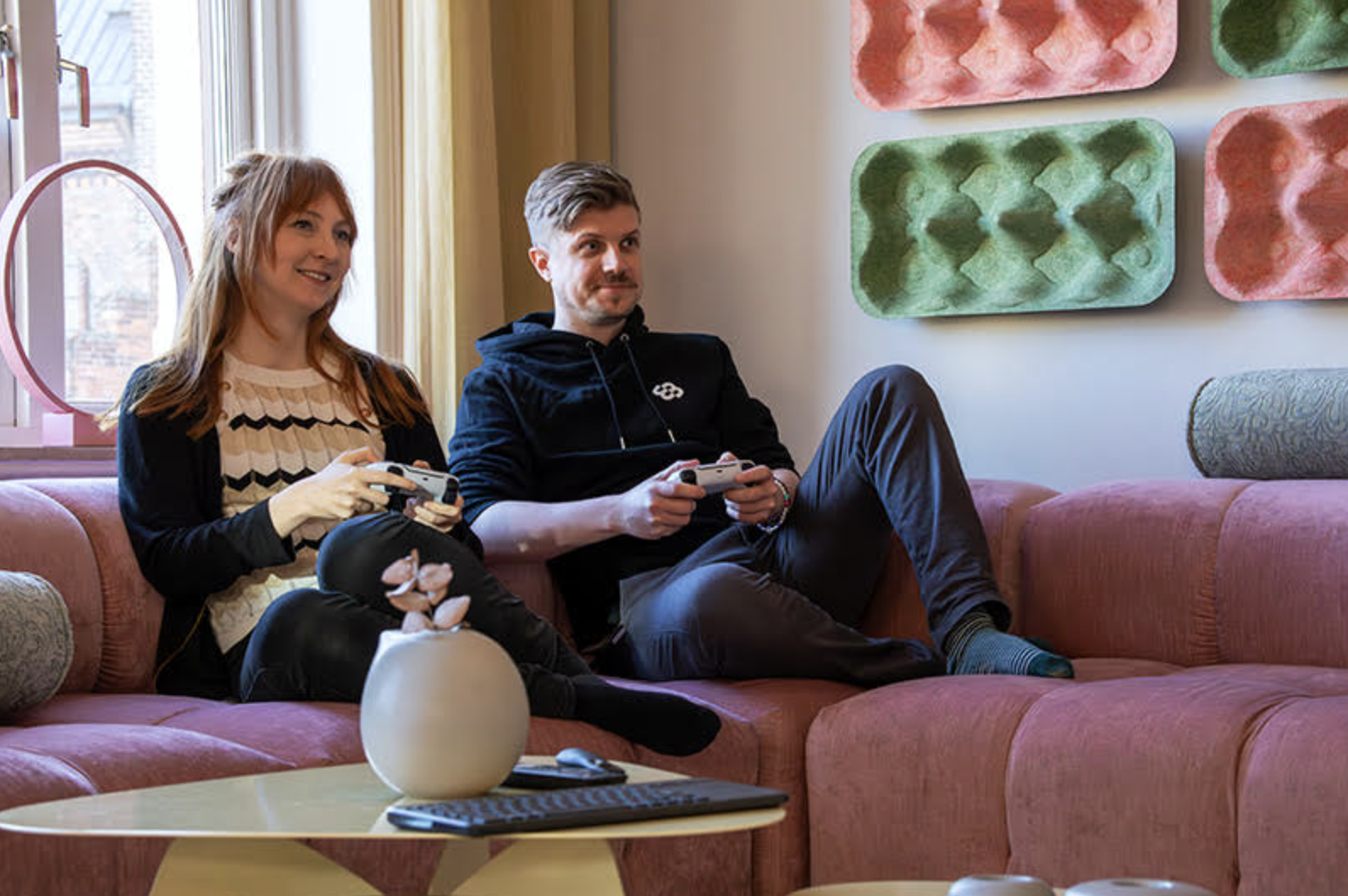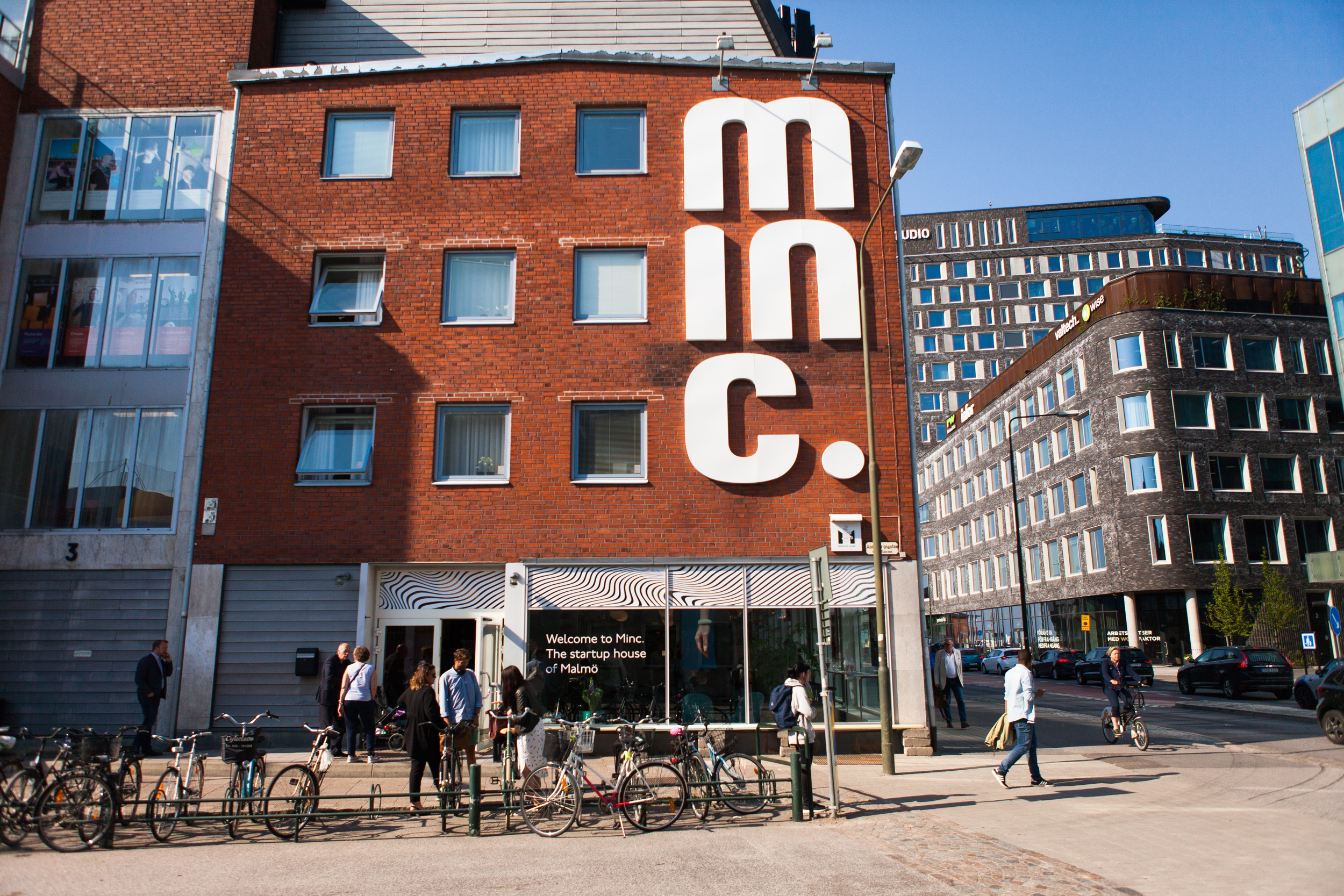From Iran to Malmö: Fatemeh’s 'Just Go For It and Be Patient' Approach Lands Dream Job.

Have you ever stepped into the unknown? Imagine leaving home to chase a dream, in a place where everything is different. The people, the food, even the air. It's thrilling but, man, it's tough too.
In Malmö, you're among a vibrant tapestry of cultures. A city where every third face has a story from far away. From 186 different countries, to be exact.
Enter Fatemeh Zarei.
She swapped the hustle of Iran for Sweden's calm. And she didn’t just make it. Today, she's found her place at Rekonnect, an innovative startup making waves in the med tech sector.
Discover how she turned challenges into wins, and (why not?) find your own inspiration to leap forward.
Fatemeh, could you briefly tell us about your move to Sweden?
F: Certainly! I moved to Sweden a year ago, on September 24. I’m originally from Iran. I made the decision to move because my partner got accepted into a University's master program here. We had been married for six months at the time and decided to start our life together here.
What made you choose Sweden?
F: Even before I met my partner, I had wanted to move to Sweden. Then, later, we had an Excel sheet comparing the pros and cons of various countries and universities. Ultimately, Sweden was the top choice for him and for us as a couple. I felt drawn to Sweden because of the opportunities it offers, and I believe it's a great place to start a family.
What is your educational and professional background?
F: I studied mechanical engineering, and then I pursued an MBA. I interned and subsequently worked for a company in the food industry for almost eight years. Juggling study and work was a challenge, but it made me more independent. The company was male-dominated, which posed some challenges, but my last year there was focused on modernizing their systems.
Upon arriving in Sweden, what were your initial thoughts or plans?
F: I was keen to explore opportunities in Sweden and compare them to what I experienced in Iran. My primary objective was to understand the language and culture, so I began with SFI (Swedish for Immigrants) classes. I then looked into internships and attended local events to familiarize myself with the business environment.
How did you eventually land your current role?
F: I attended an event organized by International Citizen Hub, where I learned about a platform called Jobbsprånget. It helps individuals from outside the EU integrate professionally. Through them, I applied for a position, had an interview, and felt an instant connection. That's how I ended up where I am today, at Rekonnect.

You began with an internship?
F: Yes, I started with a four-month internship. They soon wanted me on as a full-time employee. It's been a success journey.
And your current role?
F: I'm spearheading business development. We're connecting with medical tech companies, initiating conversations through calls, emails, and events, and understanding their needs.
How's the atmosphere in a startup?
F: Even though I hadn't worked in a startup before, I have some experience through my family members that are entrepreneurs. But their world is different, not the startup kind. Yet, I got a glimpse of that vibe from my friends in tech startups. I've been to several meetings with them, absorbing the energy. Here in this house, everyone's so energetic with goals. It's contagious. The environment is always lively and evolving, which is motivating.

Any insights from your transition to a new culture?
F: I used to place myself in diverse environments. But after coming here, I truly felt a part of another culture. Initially hesitant, attending events made me realize our shared human experiences. That gave me the confidence to move forward and embrace the opportunities that came my way.
How does it feel working in a compact team?
F: In larger companies, roles are more defined and the time from idea to action is long. Here, we're deeply collaborative. We brainstorm, make decisions, and everyone's input is vital. In just six months, I've learned so much. We're all growing together, and the immediate impact of our work is evident.
Any future goals?
F: I've always been inspired by my family's entrepreneurial spirit. I dream of starting my own company one day. I'm especially passionate about creating a space where women can truly harness and develop their potential.
If you could give advice to yourself a year ago, what would it be?
F: A year ago, I was uncertain and constantly overthinking. Now, I'd tell myself to relax, embrace challenges, take chances, and trust the process. Overthinking can hinder us.
Sometimes it's easier to give advice to a friend than ourselves, right?
F: Exactly. It's about perspective. For my friends, my advice would be straightforward: Just go for it and be patient. We all have expectations, especially when starting in a new place. But it's crucial to remind ourselves that it's okay to not be where we planned and trust our journey.
Setting goals is essential, but it seems life throws curveballs too.
F: Yes, while having a goal is important, being open and adaptable is equally crucial. You can't predict everything, especially in a new country with its unique challenges.
Would you encourage others to challenge themselves, perhaps by moving to a new country?
F: Absolutely. Moving brings personal and career growth. It's an enriching experience that expands perspectives and skills. If one genuinely feels the pull towards it, I'd say dive in; it's worth it.
What has been your favorite thing about relocating?
F: The nature! After a long day at work, the greenery and natural beauty is like meditation for my soul. Where I used to live was crowded and bustling. Here, I genuinely enjoy the fresh air and the calm.
Do you think there's anything the community could do to support newcomers or those with great ideas who might be hesitating?
F: We should extend our reach and make sure these individuals know they have a support system. Encouraging them, connecting them with resources, and giving them a platform could be transformational.
Is there anyone who inspires you, someone you look up to?
F: My grandmother, for sure. I love her a lot. Back in Iran, things were tough, especially for women. But she? She was different. Even with my grandfather working, she wanted her own money, her own thing. That's when she started this beautiful small business - making carpets. She set everything up at our home, got the materials, the tools, and invited women from our neighborhood. Together, they'd craft these carpets, adding stories and dreams into every weave. It wasn't easy, but she did it. When I think of her and how she worked in such hard times, I feel like I should do more, do better. She shows me what hard work and heart can do, and it gives me hope. She's truly amazing.
There's a notion that in more supportive societies, one might become too relaxed or complacent. Do you feel that?
F: In places with fewer resources, there's a push to constantly strive. While supportive environments are beneficial, they can make one complacent. It's up to the individual to harness opportunities and drive themselves.
Fatemeh's leap from Iran to Malmö proves that embracing change can redefine our paths. Let her journey inspire your next bold step!
About Minc
At Minc, we believe in creating something bigger than yourself. We offer everything an entrepreneur needs to go from concept to market in-house. Our international network of advisors and award-winning programs will help your startup scale faster and smarter. Welcome to the startup house of Malmö.
Related Posts

Storsatsning ska ge ny miljardsuccé från Malmö
Malmö stad skjuter till miljonbelopp för att Minc och Game Habitat ska utveckla spelbranschen i staden.
Learn more
Game Habitat och DevHub tar plats på Minc
Malmös startup- och spelcommunity kommer närmare varandra.
Learn more.jpg)
Mincs investeringsstruktur gör sin bästa exit hittills
FTC2 firar sin största exit hittills genom uppköpet av HR-techbolaget Eletive.
Learn more